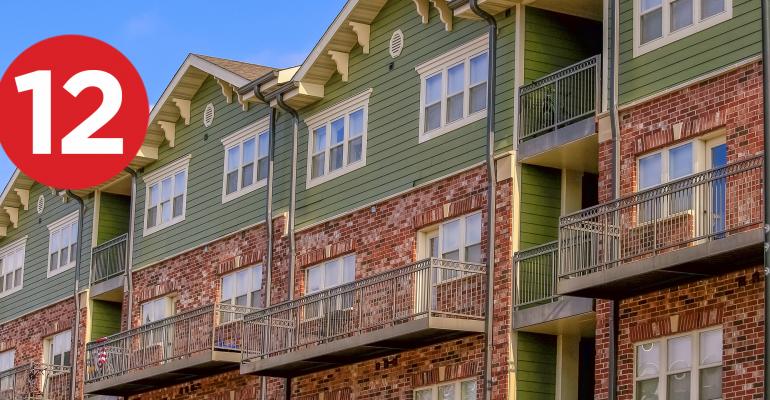- Will Remote Work Drain the Swamp? “Much of this inventory reduction (and swamp draining?) in the National Capital Region has occurred not because the government is getting smaller by most traditional metrics such as employment or spending. Still, it is getting smaller because fewer people are being asked to come into the office every day. This was true even before the start of the pandemic; in fact, the catalyst for this trend can be traced to the passage of the Telework Enhancement Act of 2010.” (Colliers)
- State attorney’s office plans grand jury investigation into cause of Surfside collapse “Miami-Dade County Mayor Daniella Levine Cava announced on Tuesday that Fernandez Rundle will ask a grand jury to look into the partial Champlain Towers South collapse. Separately, she said that Biden will be meeting with families of victims and first responders during his visit on Thursday.” (The Real Deal)
- Besides Materials Costs, Labor Shortages Are Also Hindering Construction “As businesses are opening back up, they’re running into a problem. It isn’t easy to find labor. While politicians, business executives and policymakers can debate root causes, it’s becoming a more significant issue. In the construction industry, which is already dealing with huge materials cost increases over the past year, labor is just one more hurdle to getting projects out of the ground.” (GlobeSt.com)
- America’s workers are exhausted and burned out — and some employers are taking notice “Employers across the country, from Fortune 500 companies such as PepsiCo and Verizon to boutique advertising firms and nonprofit organizations, are continuing pandemic benefits such as increased paid time off and child- or elder-care benefits as well as embracing flexible work schedules and remote work in recognition that a returning workforce is at high risk of burnout.” (The Washington Post)
- Lower Rents? Check. Speakeasy? Check. How Office Landlords Are Enticing Tenants. “They are dangling upscale new clubs and food halls available largely for tenants, hoping to draw back employees starved for workplace socializing while also pursuing new business opportunities. In one building on West 26th Street near the Hudson River, the owners — the private equity firm Blackstone and the building owner and developer RXR Realty — are showing off a 600-square-foot speakeasy tucked away in a corner of the ground floor.” (The New York Times)
- CDC Eviction Moratorium Survives What’s Likeliest Its Last Challenge “Tuesday marked what’s likely the last gasp of legal challenges to the federal eviction moratorium. In a 5-4 ruling, the U.S. Supreme Court let stand the Centers for Disease Control and Prevention‘s moratorium against most residential evictions for qualified tenants until July 31.” (Commercial Observer)
- Amazon Warehouses Are Prime for Property Investors “The jet boost that the pandemic provided to online retailers has accelerated investor demand for the warehouse properties crucial to the supply chain. In the U.S., just shy of one-quarter of all investment transactions were for industrial assets in 2020 — a record for the market. In Europe a record was also set, with 16% of all 2020 transaction volume involving industrial property, Real Capital Analytics data shows.” (Real Capital Analytics)
- LGBTQIA+ Seniors Need Dedicated Affordable Housing. There Isn’t Nearly Enough Of It “Projects like Stonewall House provide housing for a cohort of seniors that have an especially hard time finding it. LGTBQIA+ seniors still face widespread housing discrimination, experts told Bisnow, despite the Biden administration’s updates to the Fair Housing Act, announced in February, which outlawed housing discrimination based on sexual orientation or gender identity.” (Bisnow)
- Newsom signs extension of California eviction protections, rent relief into law “The governor acted just hours after both houses of the Legislature approved the bill extending the eviction protections through Sept. 30. Lawmakers cited urgency stemming from the expiration of previous protections this coming Wednesday.” (KTLA5)
- How the Commercial Real Estate Market is Beginning to Define the "S" in ESG “Of the three ESG elements, the ‘S’ (social), has been the most difficult to quantify. According to the United Nations Principles for Responsible Investment, ‘the social element of ESG issues can be the most difficult for investors to assess. Unlike environmental and governance issues, which are more easily defined, have an established track record of market data, and are often accompanied by robust regulation, social issues are less tangible, with less mature data to show how they can impact a company's performance.’” (Trepp)
- Fannie, Freddie Undeterred in Commitment to Seniors Housing Borrowers “Many parts of the seniors housing industry slowed as a result of the COVID-19 pandemic, including the lending market. Fannie Mae and Freddie Mac, the two giant government-sponsored enterprises (GSEs), experienced a significant pullback in deal volume in 2020, but remained two of the larger capital sources in the sector.” (Real Estate Business)
- Report: Store closures decline for the first time in 2021 “Coresight's latest report is another data point showing how retail is recovering from the wretched year of 2020. Earlier this year, for a moment, openings even outpaced closures, according to Coresight. As the year has worn on, closures have overtaken openings again, however.” (Retail Dive)
0 comments
Hide comments





